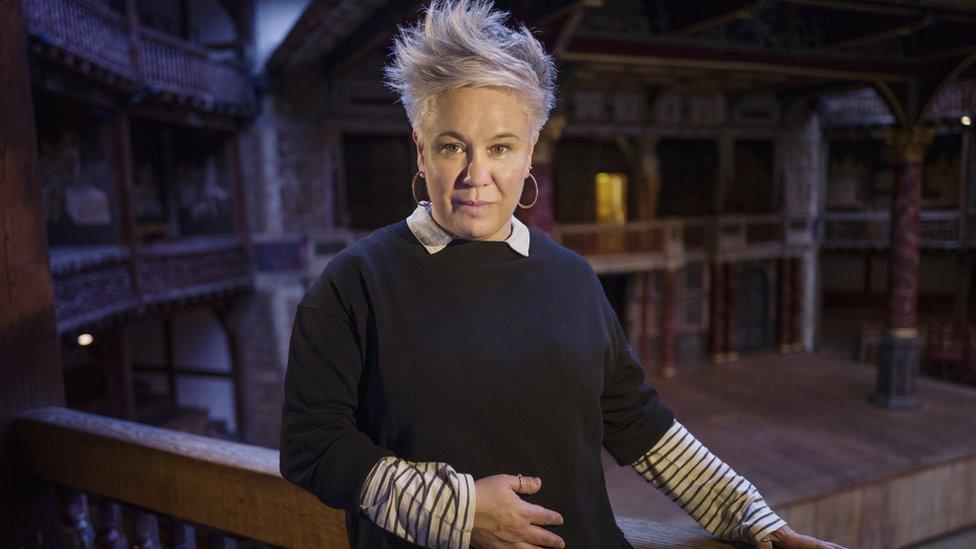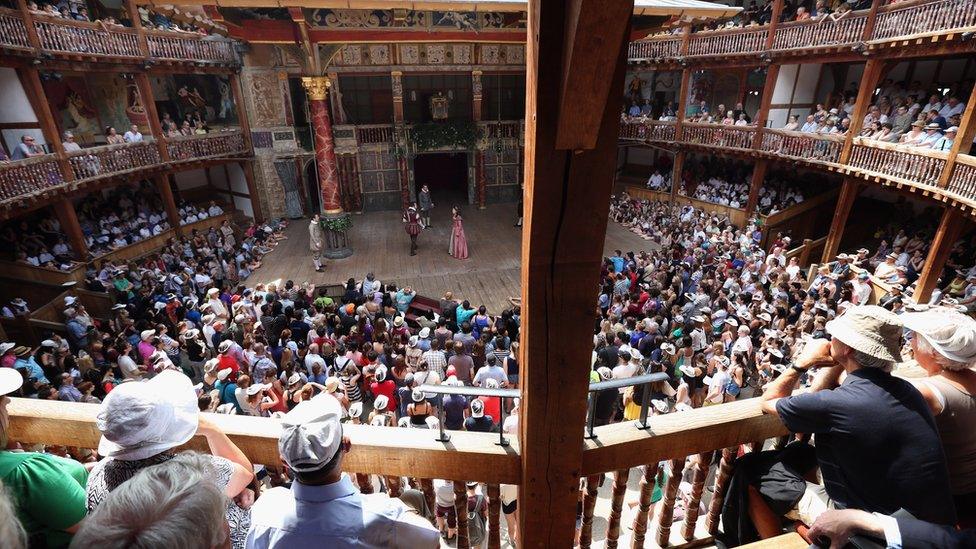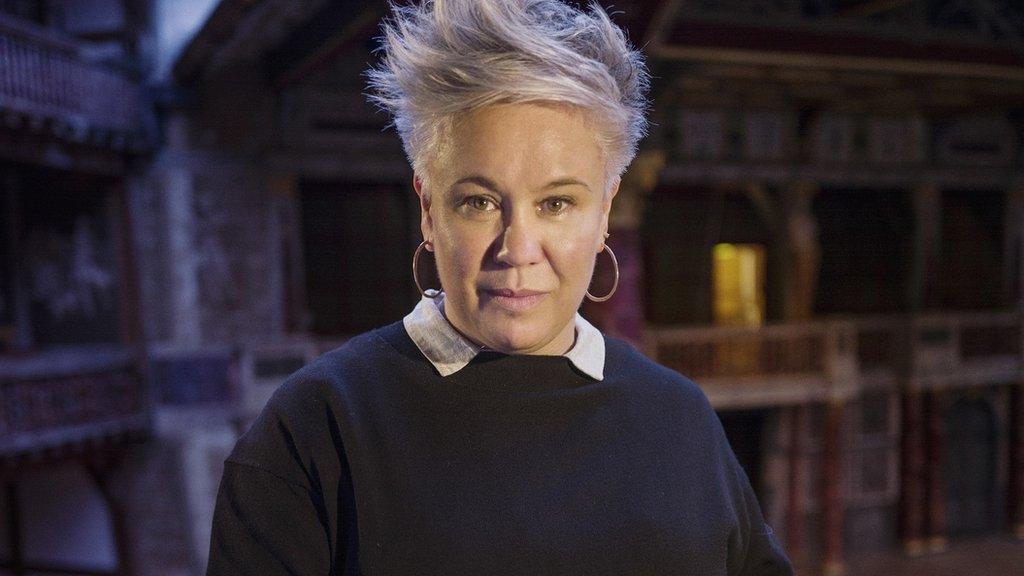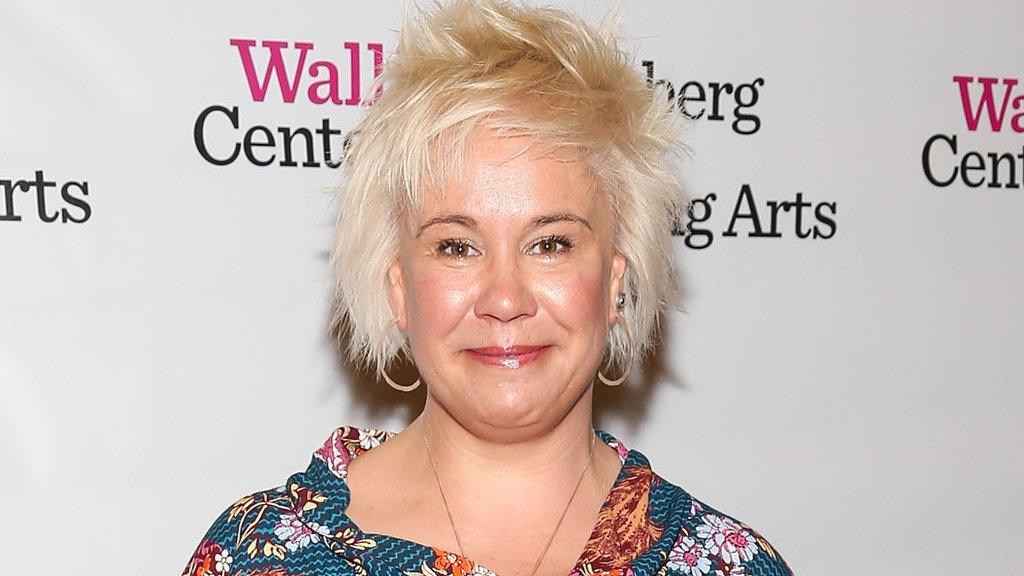Shakespeare's Globe: The real-life drama that led Emma Rice to quit
- Published

Emma Rice said the Globe's board tried to restrict her artistic freedom
Power struggles, personality clashes and conflicting agendas - it could be the plot of a Shakespearean tragedy.
In fact, it is the real-life backstage drama at Shakespeare's Globe theatre.
Artistic director Emma Rice and her predecessor Dominic Dromgoole have laid bare details of the dispute that led Rice to resign last year.
Her decision was sparked by her use of artificial lights and sound, but in an open letter she has said it "was about personal trust and artistic freedom".
She announced her departure in October and will leave the London venue next year.
With applications for her successor closing on Monday, she and Dromgoole have written revealing letters on the theatre's website, external.

The Globe is a reconstruction of a Shakespearean theatre on London's Southbank
Rice wrote: "Here, I have found my fight and my 'right', I have stood up for what I believe in and tried to do it with kindness, care and seriousness.
"However, in the wake of recent events, the Globe is wrestling with what, at its core, it now stands for. It is still in the process of deciding and clarifying what its fight and its 'right' are.
"I had to choose to leave because I choose myself and my work. Never think that my decision to step down in 2018 was simply about lights and sound, it was about personal trust and artistic freedom."
She added a warning to the person who follows her: "You must make sure that your own freedom is assured."
She decided to quit, she said, because the theatre's board "did not love and respect me back" and "began to talk of a new set of rules that I did not sign up to and could not stand by".
A list of lessons she has learned included: "I have learnt, never again, to allow myself to be excluded from the rooms where decisions are made."
The Globe, she explained, is "not a job, it is a vocation and an all-consuming, delicious tangle of histories, hopes, passions and agendas".
Dromgoole, who was at the Globe from 2005-16, went further in detailing the pressures borne by artistic directors.
The "bile" from external critics "can be disabling", he wrote.
He went on: "Sadly the negativity doesn't only come from without, there is also a fair sum within.
"There are structural problems, there are personality problems, there is too much fighting for territory, and there are too many who feel free to comment on work without ever taking the risk of making it.
"It is absurd that out of the mess of last year, the only person to be suffering the consequences is Emma."
He said he disagreed with Rice's attempts to move away from the traditional "shared light" - in which the actors and audience are in the same light - which he said was "at the heart of her disagreements with colleagues and the board".
But he said: "I cannot respect the blocking of her choice."
'Moral strength'
He warned her successor to be "exceptionally wary of those who do not want to advise but who want to influence", adding: "Everybody wants to be artistic director. They can't all be. Only you can."
The only people with the "moral strength" to get rid of an artistic director are the audience, he wrote.
"No-one else, not the board, not your supposed colleagues, not the vulture punditry, just the audience. Emma had lost a little of the Globe audience, but all the evidence is that she had gained some as well."
A spokesperson for the theatre said chief executive Neil Constable and the board would not be commenting on the remarks.
The Globe, which opened in 1997, is a reconstruction of a Shakespearean theatre on London's Southbank.

Follow us on Facebook, external, on Twitter @BBCNewsEnts, external, or on Instagram at bbcnewsents, external. If you have a story suggestion email entertainment.news@bbc.co.uk, external.
- Published25 October 2016

- Published21 October 2016
